UK Hotels See Rising Number of Asylum Seekers Again: Promises
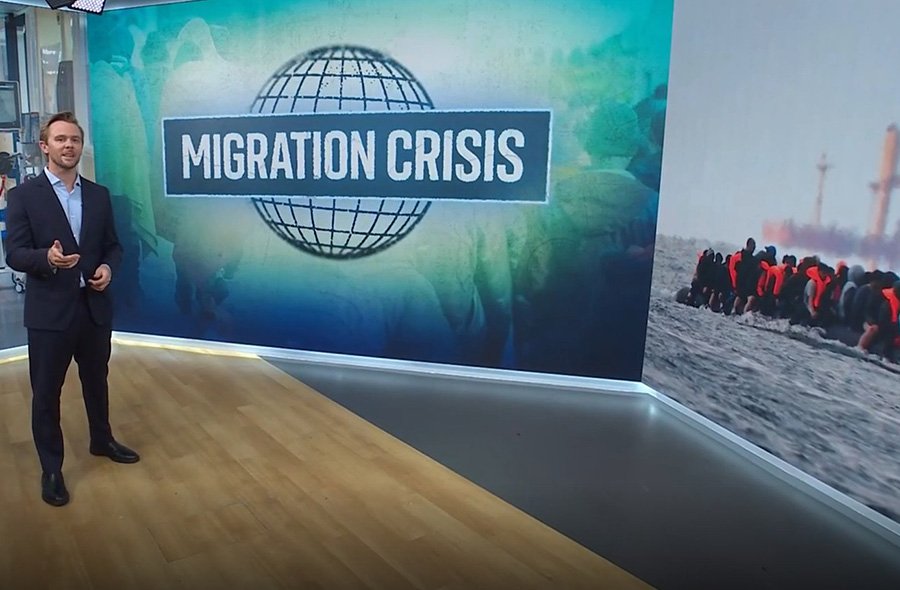
The UK’s migration statistics have once again fueled political disputes. While the government claims tighter control and more deportations, the number of asylum seekers accommodated in hotels rose by 8% in June 2025 compared to the same period in 2024, reports The Guardian. This trend contradicts official pledges to cut costs and end hotel use for migrant housing.
By the end of June 2024, 29,585 asylum seekers were housed in UK hotels. A year later, the figure climbed to 32,059. While slightly below March 2025’s level of 32,345, it remains well under the September 2023 peak of 56,042. For the first time in four years, the asylum backlog fell below 100,000. By mid-summer, pending cases stood at around 71,000, covering 91,000 people — down 18% from 2024 and the lowest since September 2021, when it reached 134,000.
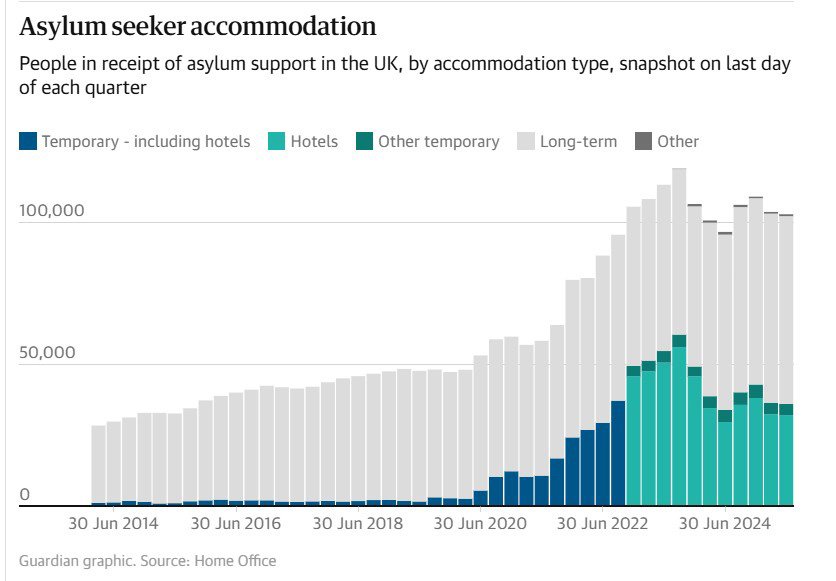
At the same time, deportations increased. A total of 9,100 people were forcibly returned in 2025 — a 25% rise from 2024. More than half were foreign nationals with criminal convictions expelled after serving prison terms. This means much of the effort targets offenders rather than rejected asylum seekers, skewing the official statistics, highlights Sky News.
The Migration Observatory at Oxford University notes that removals had already been rising in recent years. In 2024, the UK sent home around 34,000 people — 25% more than in 2023 and the highest figure since 2017. Most were voluntary returns: 12,000 via official programs and over 14,000 independently. Only 8,200 were forcibly deported, almost all from detention centers.
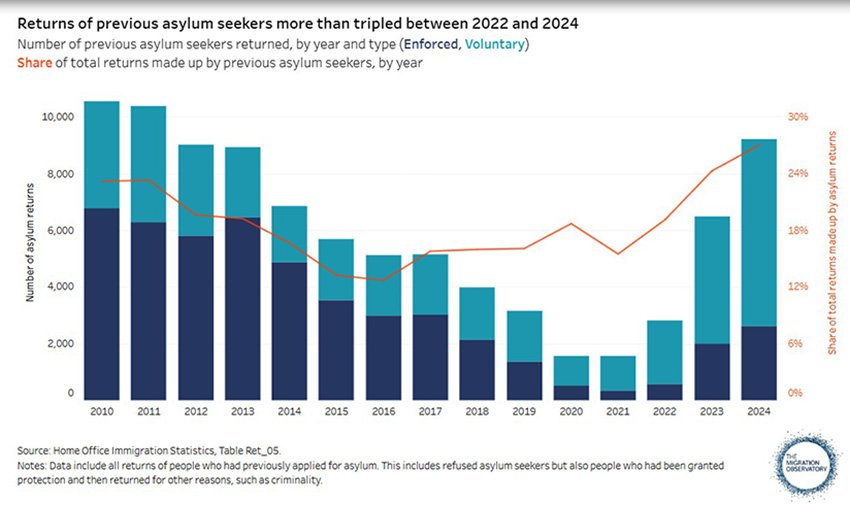
Foreign prisoners accounted for 15% of deportations — around 5,000 people. Between 2010 and 2020, nearly half of rejected asylum seekers also left the UK voluntarily without being forcibly removed. By contrast, Channel crossings remain difficult to manage: from 2018 to 2024, only 5,000 people were returned — just 3% of arrivals. Albanians were most frequently deported under a bilateral deal with London.
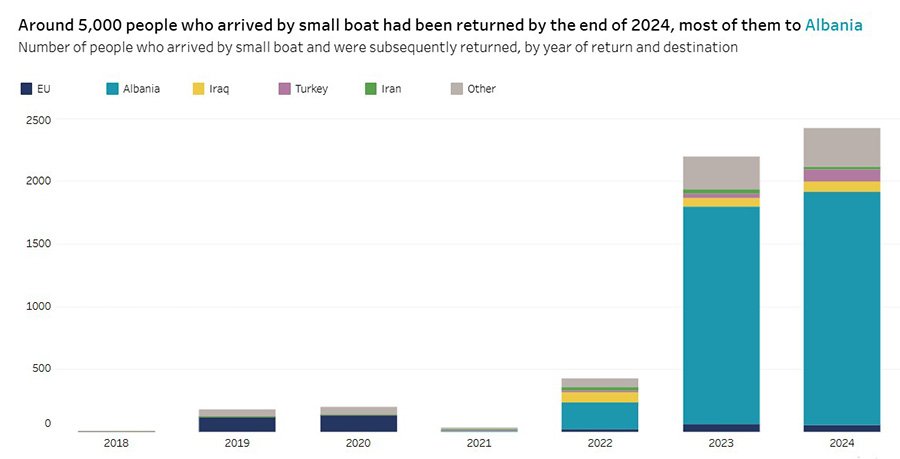
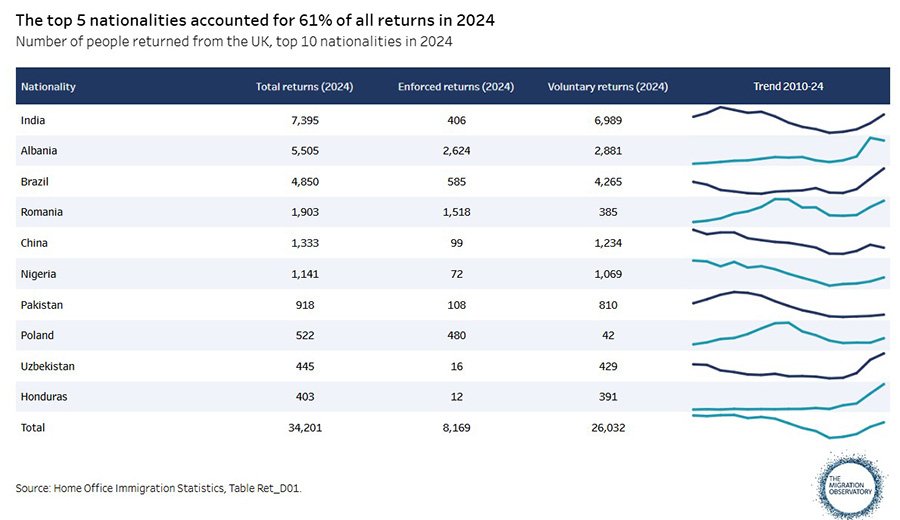
In August 2025, a new agreement with France came into effect, allowing some Channel migrants to be returned in exchange for Britain accepting about 50 people per week with family ties in the UK. This marks the first attempt to create a more balanced system and ease tensions over the Channel route.
Home Secretary Yvette Cooper announced that in 2025 the government cut asylum system costs by 11% — from £5.38 billion to £4.76 billion. The funds were redirected to refugee support, housing, staff, and border management. Refugee Council head Enver Solomon praised the increased decision-making as a “real achievement”, noting that faster resolutions allow people to start new lives sooner and reduce reliance on expensive hotels.
Still, legal battles over hotels are mounting. In Essex, 140 asylum seekers are set to be evicted from the Bell Hotel due to planning violations. Similar lawsuits are being prepared in Broxbourne, Reigate, and Hillingdon, as well as by more than ten Labour councils. The Democratic Unionist Party in Northern Ireland also opposes hotel use. Investigations have begun into Chimney Corner Hotel in Antrim and Newtownabbey, with further complaints lodged against other facilities. Former Justice Secretary Charles Falconer urged the government to appeal such rulings, warning they risk fueling more street protests outside hotels.
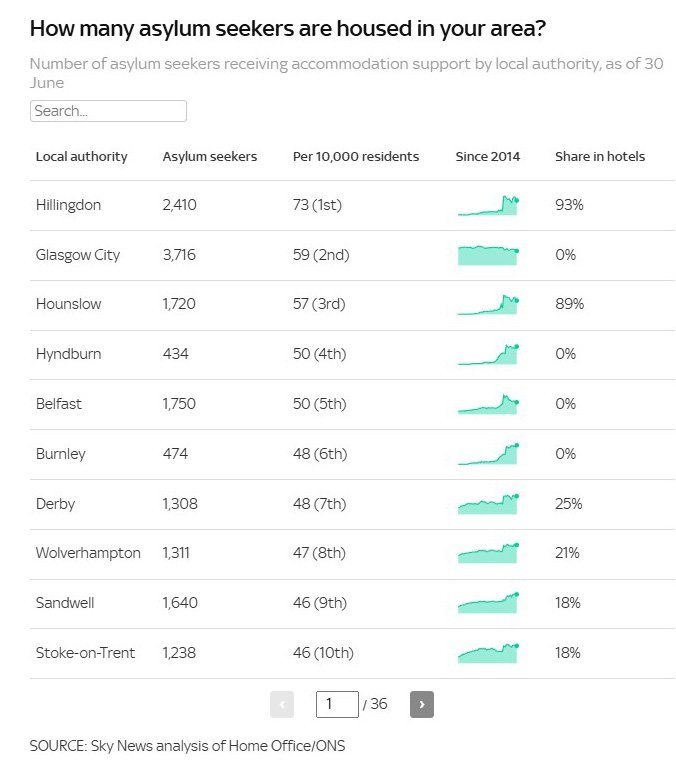
The asylum system remains under strain. While pending cases are declining, around 65% of boat arrivals are granted asylum — undermining government pledges to shut down this route. The promise to end hotel accommodation has also not been kept. Moving asylum seekers into regular housing has provoked public backlash amid housing shortages and pressure on social services.
The surge in appeals worsens the situation, delaying processes, raising costs, and burdening courts. Asylum seekers are left in limbo for months or even years, fueling further tensions. Migrants, especially those arriving illegally, remain a politically vulnerable issue for the government. Official claims of progress contrast sharply with the rise in hotel figures. Authorities insist reforms — including an overhaul of the appeals system — are needed to restore order and end the “chaotic use of hotels.”
Подсказки: UK, asylum seekers, migration, refugee crisis, deportations, hotels, immigration policy, Yvette Cooper, Channel migrants, politics








